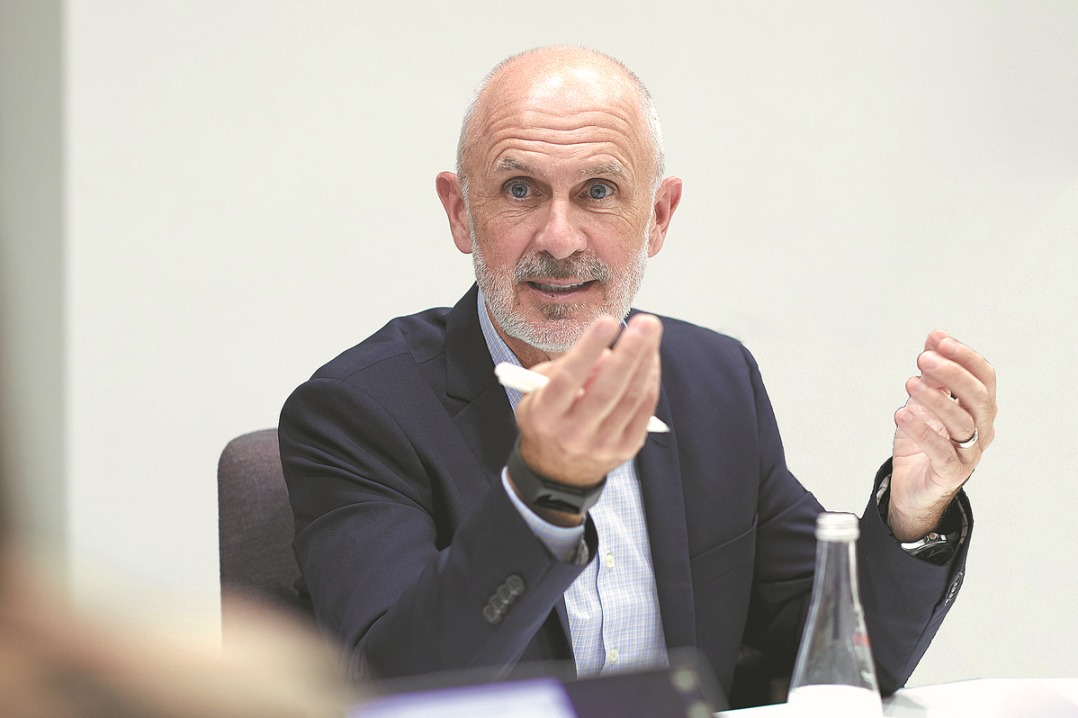Mood toward NEV stocks brightens


Listed Chinese new energy vehicle makers can look forward to their stocks performing well in capital market on the back of their robust production and sales numbers, which will be further boosted by the country's supportive policies, market insiders said.
Industry giant BYD sold 313,200 NEVs in April, up 49 percent year-on-year. In all, the company sold 939,500 NEVs in the first four months of the year, up 23 percent year-on-year, it announced on Sunday. Chongqing-based Seres also said on Sunday that it sold 27,868 NEVs in April, up 302.89 percent year-on-year.
Zeeker delivered 16,100 NEVs in April, up 99 percent year-on-year to hit another record high. Nio delivered 15,600 NEVs last month, up 134.6 percent year-on-year.
A car trade-in subsidy program jointly released by China's Ministry of Commerce, Ministry of Finance and seven other departments took effect on April 26. A 10,000 yuan ($1,400) subsidy will be offered to buyers who trade-in older cars for new NEVs before the end of the year.
The trade-in plan is expected to spur demand from Chinese car buyers who adopted a wait-and-see stance in the previous months, said Yin Xinchi, chief auto and parts industry analyst at CITIC Securities.
An estimated 14.5 million cars will be eligible for the trade-in program, which might result in the sale of 5.5 million cars by the end of the year. Of the cars that will be eventually traded in, 1 million will be incremental sales, equating to 4 percent of the expected total car sales in China this year, the brokerage said.
As subsidy plans for commercial cars — vans and other types of vehicles that can seat nine or more passengers — are expected to follow, the brokerage is now overweight on auto stocks in the A-share market as they are likely to outperform the benchmark indexes amid increased supply of new cars, said Yin.
According to the plans announced by the nine ministries, the central government will fund 50 percent of the subsidy money earmarked for eastern provincial-level regions, 60 percent for central provinces and 70 percent for western provinces. The rest will be funded by local governments.
Wang Liusheng, chief automobile analyst from China Merchants Securities, said such joint efforts will expand the coverage of the trade-in program and lighten the financial burden of local governments. The program will significantly stimulate car consumption in China this year, facilitating the long-term sound development of the country's car industry.
Analysts from Huajin Securities said investors may want to explore potential profit opportunities in auto stocks in the A-share market, as they are part of the new quality productive forces, fueled by continuous technology breakthroughs and facilitating China's high-quality economic development. Auto stocks' current valuations are quite low at present and their gains so far this year have been modest, suggesting huge room for future upside, said Deng Lijun, the brokerage's chief strategist.
During an online media briefing on April 29, Paul Gong, head of China Auto at UBS Global Research, said China's positioning for international carmakers has changed profoundly in recent times. These companies used to complete product development in Germany and Japan, but now they are embedding more technologies developed in China in their new products, said Gong.
"China, which once served as a 'gym' for these automotive companies, has now become a 'university'. Carmakers have learned in-depth knowledge about NEVs and smart technologies in China so that they can improve their competitiveness and prepare for the global launch of new products," he said.
"China used to be a product market where Western car companies sell their end products. Now, the country has become a source of their innovation and technology advancement."
Robin Xing, chief China economist at Morgan Stanley, said it is "unfair" to harp on China's so-called overcapacity. The country's advantages in the field of green transformation are built upon the progress achieved both on the supply and demand sides simultaneously.




